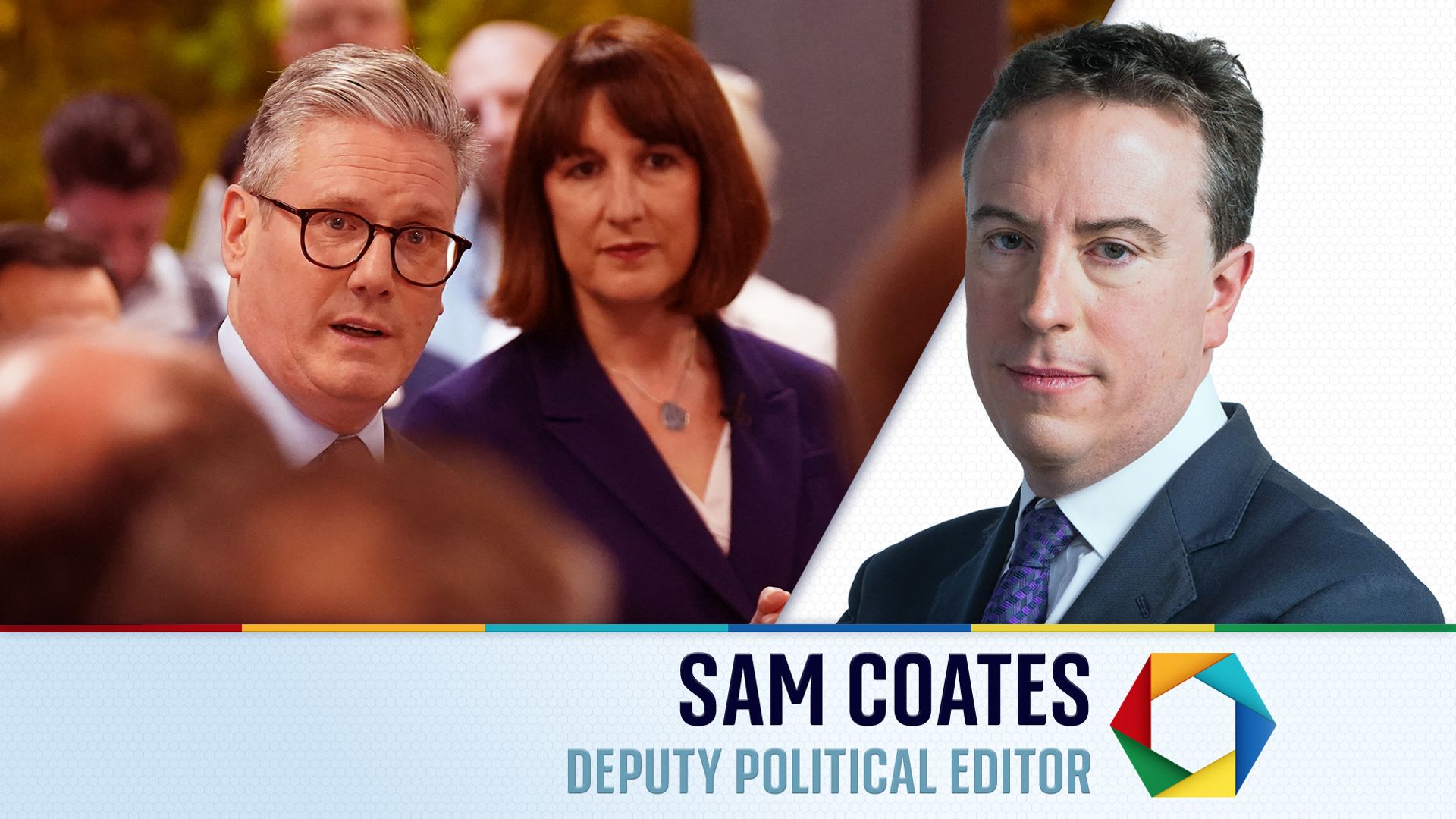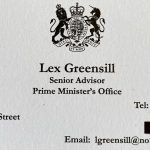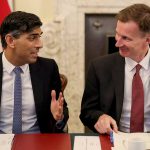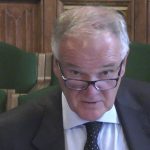The statement announcing the change of Labour’s tax policy arrived at some point after 9pm on Wednesday night – hardly ideal optics for a change mid-campaign of something so consequential.
The result – a potential future Labour government has just made its life markedly harder if it turns out money is tight, closing down options as part of a safety first campaign to avoid risk.
It has been a long journey in a short time.
Politics live: Tory tactic on Starmer age may backfire, poll suggests
On the BBC last Sunday, shadow chancellor Rachel Reeves ruled out raising income tax and national insurance at any point in the next parliament if Labour wins the next election.
On Tuesday, the shadow chancellor told me that on top of income tax and national insurance, corporation tax would also not rise in the next parliament.
Please use Chrome browser for a more accessible video player
On Wednesday, her deputy, shadow chief secretary to the Treasury Darren Jones, confirmed this position – these three taxes were ringfenced from increases.
If Starmer is ruthless, he needs to resolve ‘purge’ row quickly – as Labour faces first election crisis
Conservative Mark Logan defects to Labour – saying ‘we need a new government’
Jeremy Corbyn says Sir Keir Starmer is ‘clearly intervening’ in ‘purge’ of left-wing Labour candidates
Mr Jones insisted there were “no plans” to increase other taxes beyond the smattering already announced, but this weaker “no plans” formulation is not a guarantee.
Plans do change in the transition from Opposition to government – not least if they find a black hole in the books on entering power. Only three taxes were safe in this instance.
But this position created a problem.
Keep up with all the latest news from the UK and around the world by following Sky News
After ruling out any increases to income tax, national insurance or corporation tax, experts thought Ms Reeves had left some significant wiggle room.
The obvious option for a future Chancellor Reeves in the event she needed hard cash quickly would have been to raise VAT, one of the “big three” taxes that brings in more than £70bn a year.
Although Labour is not thought to be planning a surprise rise in the headline rate, as former chancellor George Osborne performed on entering power in 2010, there are all sorts of tweaks to scope and allowances which might raise useful cash.
But questions – and political pressure – grew, culminating in a Tory “tax bomb” ad campaign, based on their opponents’ failure to rule out VAT rises.
👉 Tap here to follow Politics at Jack at Sam’s wherever you get your podcasts 👈
Labour was asked about the Tory campaign on Wednesday afternoon. Hours later they issued a statement extending the guarantee of no tax increases to VAT.
The party is now claiming that because they had “no plans” to raise VAT, this is not a big shift.
But having now moved their position on VAT to bring it into line with the Tories and Lib Dems, it makes it all but impossible to nibble at this tax in the next parliament.
There are all sorts of reasons Labour may need more cash – massive as yet unaccounted-for compensation schemes, like the one for the infected blood scandal, councils going bust, and any attempt to resolve the remaining public sector strikes – all expensive.
Be the first to get Breaking News
Install the Sky News app for free
All this at a time when the path of public spending for the next few years is judged all but unsustainable by independent observers, including the International Monetary Fund (IMF).
But Labour has set very tight borrowing rules, largely copied off the Tories, meaning it will be hard to fund things through a big increase in debt, which leaves tax – how much harder has Reeves made her own job?
Perhaps more worrying is the impression that Labour may have been bounced. They deny this – saying they anticipated this might happen all along.
But projecting stability and thoroughness – to draw a contrast with the current Tory government – requires consistency, not late night changes to policy.






















